- Make It Yourself Lavender Heart-Shaped Bath Bombs!
- 20 Things You Never Knew About “Down There”
- 12 Best Foods For Those Suffering From Arthritis Pain
- 12 Personal Hygiene Mistakes Almost Everyone Makes (Mom Never Told You About #4!)
- 15 Medicinal Plants And Herbs From The Cherokee People
- 12 Mind-Blowing Benefits Of Drinking Coconut Water During Pregnancy
- 12 Outstanding Winter Foods That Won’t Fatten You Up Like A Christmas Turkey
The 9 Best Oils For Cooking And A List Of The Worst Oils You Could Use
Americans today have perhaps one of the widest ranges of choices when it comes to cooking oils than anywhere else on Earth. There are so many different types, colors, flavors, and origins that it can be hard for the average consumer to figure out which oils are healthy and which oils should be avoided.
Perhaps one of the most important things to consider when choosing an oil is not only is it safe and nutritious to consume in its natural, unprocessed state, but will it remain so after it has been heated? Some oils simply cannot stand up to high temperatures and they break down quickly. Other oils turn rancid rather quickly, and still others actually produce cancer causing free radicals when the oil is heated to a certain temperature.
Oils that are high in saturated and monounsaturated fats tend to be both the most nutritious oils as well as the most resistant to heat. This makes these oils the best choice for cooking. Other oils are very nutritious, but since they break down when heated, they should only be used for cold dishes such as salad dressings or dips.
If you are tired of scanning through the hundreds of bottles of oil at your supermarket and wondering what the heck the difference is and which you should buy, this list is for you! We have compiled a list of the 9 best oils for cooking and other culinary uses, as well as a list of the worst possible oils that you should avoid at all costs!
Keep reading so that the next time you walk into your supermarket, you can confidently walk to the oil aisle and choose the absolute best oil for you and your family with complete confidence!
1. Coconut Oil.
The clear winner in this contest is coconut oil. With more than 90 percent of its fatty acids being saturated fats, this makes coconut oil super heat resistant. Although this oil is semi-solid at average room temperatures, it turns liquid at the slightest touch. Coconut oil can literally sit for years in a sealed container and never go rancid.
This oil also has incredibly powerful health benefits. It is rich in lauric acid, which can help to kill bacteria, various types of pathogens, and can lower cholesterol levels in the body. Coconut oil also temporarily raises the body’s metabolism, which can help you to lose weight, especially around your middle. Many people also report that coconut oil makes them feel fuller for longer periods of time, so they eat less at other meals.
To get the most health benefits possible, always choose virgin coconut oil. It tastes great, smells great, can be used in the kitchen and bath (it’s perfect for skin, teeth, and hair as well) and is overflowing with healthy compounds that will benefit everyone in your family.

Photo credit: bigstock.com
2. Extra Virgin Olive Oil.
Although olive oil is often touted for its heart healthy benefits, which no one can deny, it is not the best oil when it comes to cooking.
Olive oil is a key ingredient behind the health benefits of the Mediterranean diet. It can raise your good (HDL) cholesterol and lower the amount of bad (LDL) cholesterol in your blood. The oil is great for many things but not for cooking under high heat. Used in dressings, dips, simmering sauces (such as spaghetti), olive oil is a great choice. However, if you want to use it for frying, you would be better off using coconut oil for those foods.
Always choose extra virgin olive oil, as it has many more antioxidants and nutrients than the regular, refined olive oil. You will also enjoy the taste more. Extra virgin oil will cost you a bit more, but it is SO worth it!
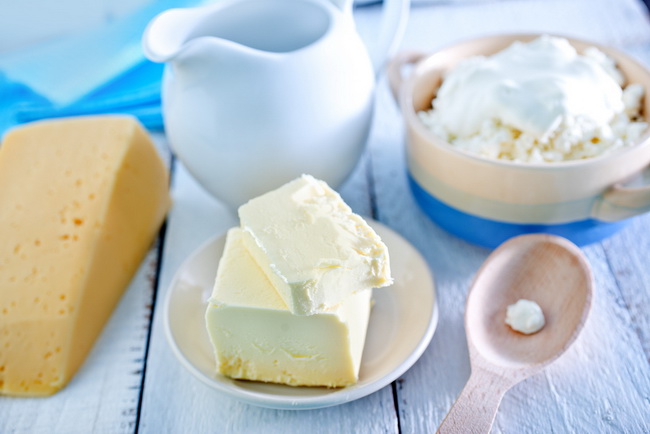
Photo credit: bigstock.com
3. Butter.
If you previously swore off butter because you heard that it was full of saturated fat, you can rejoice and start buying butter once more. Real butter is super healthy, natural, and rather nutritious. Real butter, especially from grass fed cows, contains vital fatty acids such as CLA (conjugated linoleic acid) and butyrate, both of which are loaded with healthy benefits. Butter is also full of vitamin A, E, and K2, which are important to your skin, blood, eyes, and immune system.
Studies have shown that CLA can lower the percentage of body fat in humans. Butyrate improves gut health, fights inflammation, and, in one study involving rats, made these animals completely resistant to becoming obese! Who doesn’t want more of that?!
The only problem with butter is that it can burn. You can solve this problem by using ghee, which is a type of clarified butter.
Always choose butter that was made from grass fed cows as this type of butter will contain the highest level of vitamins and CLA.
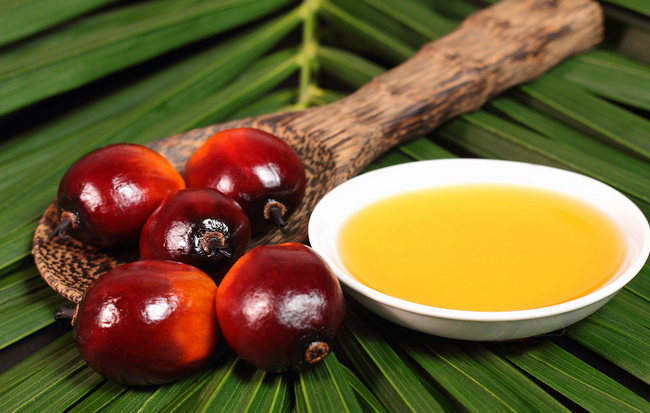
Photo credit: bigstock.com
4. Palm Oil.
As the name implies, palm oil comes from the fruit of oil palms. This oil is mostly saturated and monosaturated fats, along with small amounts of polyunsaturates, which makes this oil a pretty good choice for cooking.
The unrefined type of palm oil is called Red Palm oil, and this is, naturally, the best type. Red Palm oil is rich in coenzyme Q10, vitamin E, and many other nutrients.
The only problem with this type of oil is that there have been many concerns raised lately regarding the sustainability of palm oil. Growing these types of palm trees means less natural environment for Orangutans, which are an endangered species.
Do some research and let you conscience be your guide when it comes to this oil.
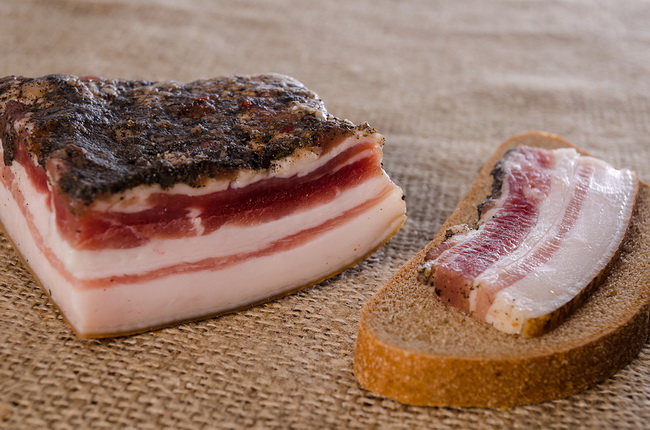
Photo credit: bigstock.com
5. Animal Fats.
Animal fats include things like tallow, lard, and bacon drippings. The fatty acid content of these types of fats can vary depending on what the animal ate. Animals that consume great quantities of grain will produce fat that contains mostly polyunsaturated fats. When the animals eat a more natural diet of grass and natural seeds, there will be more monounsaturated and saturated fats.
What this boils down to is that when you can find lard or other animal fats that come from grass fed animals, or animals that were fed a more natural diet, you will have an excellent source of fat for cooking purposes.
You can by lard or tallow at most stores premade, or save the grease from your bacon or other meat when cooking it for reuse later on. Bacon drippings add an especially tasty flavor to just about any dish!
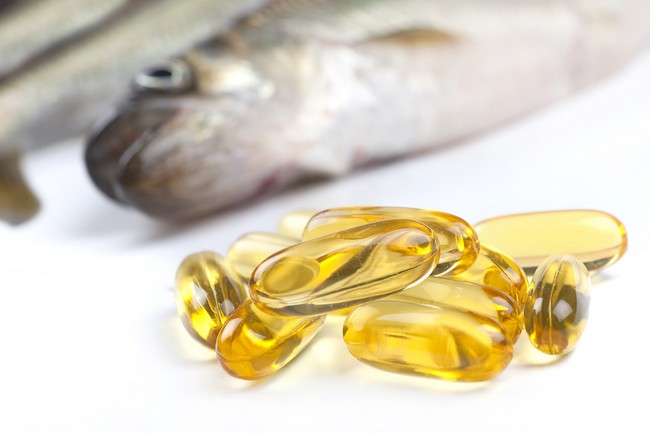
Photo credit: bigstock.com
6. Fish Oils.
Fish oils are super high in polyunsaturated fats, which mean that they should never be used for cooking. However, a tablespoon or so of these types of oils each day is the perfect way to get your omega-3 fatty acids.
The best of all fish oils is cod liver oil, as besides being rich in omega-3 fatty acids, it is also rich in vitamin D3, a vitamin that most people in the world, especially in America, have a deficiency in.

Photo credit: bigstock.com
7. Avocado Oil.
This is another healthy oil that is very similar in makeup to olive oil. It is mostly monounsaturated fats, with some saturated and a bit of polyunsaturated fats added to the mix.
SEE ALSO: Amazing Things You Never Imagined About Avocados
Just like olive oil, you can use this in many cold dishes, such as for salad dressings or in simmering sauces, but avoid using it for high temperature frying.

Photo credit: bigstock.com
8. Peanut and Other Nut Oils.
There are numerous nut oils available, such as peanut, macadamia, and hazel nut and they certainly do taste wonderful, however, because they are full of polyunsaturated fats, they should not be used for cooking.
You can use them as a part of a recipe, but don’t use these oils for frying.
The same rule applies to peanuts, even though they are technically legumes and not nuts, but their oil makeup is pretty much the same as most nuts.
One exception is macadamia nut oil, which can be used for low temperature cooking, but that’s about as far as it goes.

Photo credit: bigstock.com
9. Flax Seed Oil.
Flax seed oil contains a great deal of the plant form of omega-3, called alpha linolenic acid, or ALA. Many vegan use this as an alternative to fish oil to get their omega-3s, however, unless you are vegan, you should stick to fish oil as the body does not fully convert ALA into the more active form of omega-3 EPA and DHA.
As for cooking, since flax seed oil is mostly made up of polyunsaturated fats, this oil should not be used for cooking.
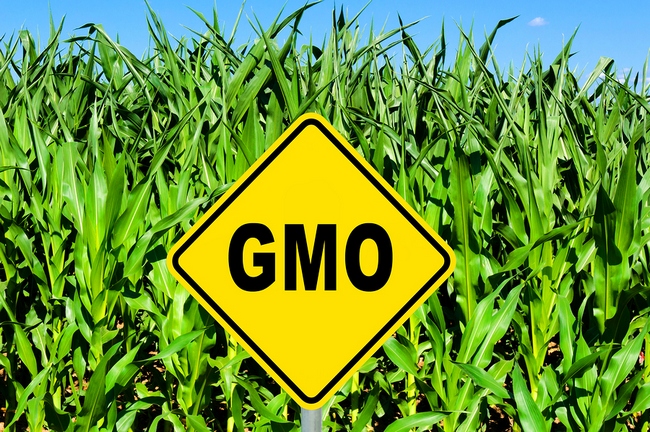
Photo credit: bigstock
Oils to Avoid.
Unfortunately, most of the oils on the market today are industrial seed, GMO, highly processed vegetable oils. These oils are downright dangerous in that they are overloaded with omega-6 fatty acids, which the body does need, but not in these huge amounts.
One thing your body does not need is GMO products and about 90 percent of the corn and soybean grown today and used in cooking oils are GMO. Canola oil is now pure GMO and is not only one of the worst kinds of oils you can consume, but it goes rancid faster than any other oil.
Numerous studies show that these oils lead to serious diseases including heart disease, stroke, metabolic diseases, and cancer. One study showed that the vegetable oils on the following list had between 0.56 and 4.2 percent trans-fats, which are highly toxic to the body and are truly dangerous.
The following list includes oils you should avoid at all costs, no matter how inexpensive they are, and no matter what the claim on the label:
- Safflower oil
- Soybean oil
- Rice bran oil
- Corn oil
- Sesame oil
- Cottonseed oil
- Sunflower oil
- Canola oil
- Rapeseed oil
Read food labels carefully. If any of the above oils are listed, make another choice.
References:




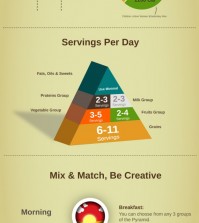






























Marge Mullen
Sep 25, 2015 at 12:18 pm
Animal fats? Are you serious??? Also you need a proof reader!!
Andrew Merrett
Sep 12, 2017 at 5:53 pm
Yet another person brainwashed into thinking all animal fat in any amount is bad. And then backing up their attack by saying something totally irrelevant.
Prakhar Jain
May 24, 2017 at 12:19 am
This is mostly wrong IMO.
ema baj
Jul 18, 2017 at 4:07 pm
Animal fat?!?!?!!!! What are you teaching people that is by far the worst fat for your health, you should not consume it at all thats how bad it is, this needs to be removed ASAP , in dietitian and nutrition classes they tought me this and the Bible even mentions it so stop lying
Andrew Merrett
Sep 12, 2017 at 5:52 pm
Don’t bring the Bible into it.
krolic
Feb 13, 2018 at 10:05 am
What do you base this on? 50s and 60s margerine propaganda??
Nick G.
Aug 21, 2017 at 11:22 pm
Great list! Read another site’s list touting canola oil as healthy so I knew that list was bunk, but this one I mostly agree with.